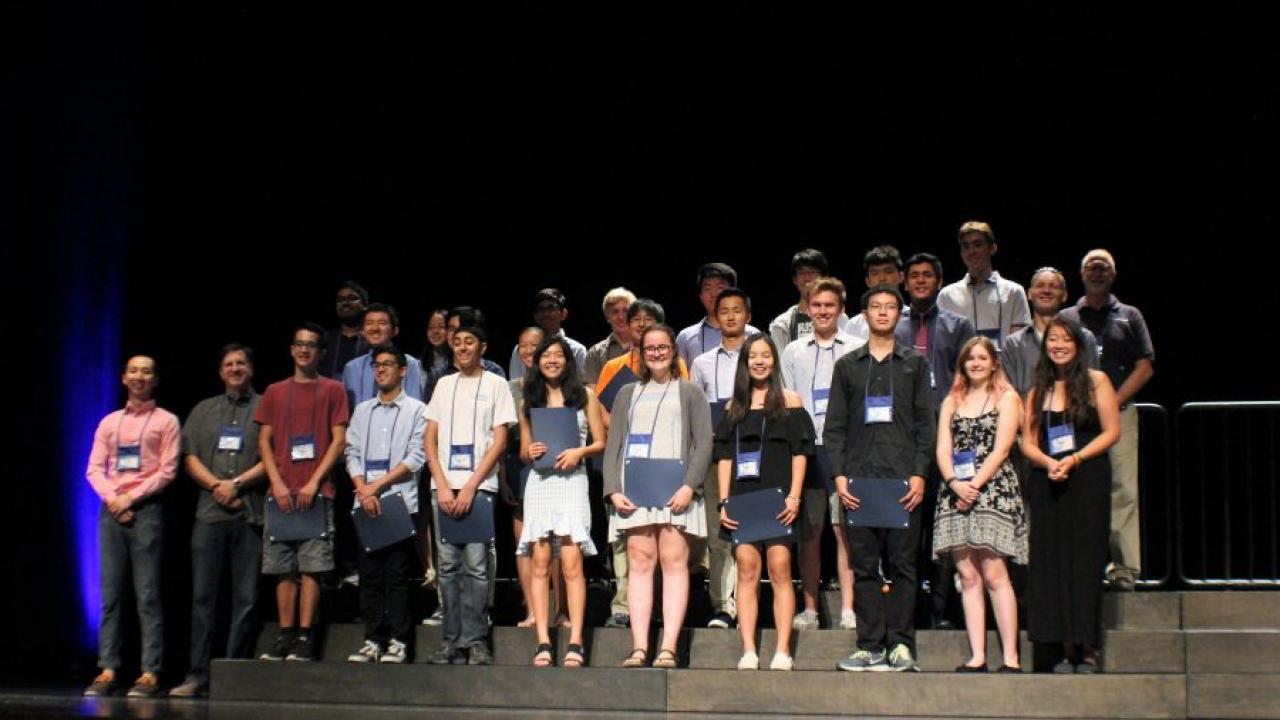
COSMOS Aims to Inspire Future Scientists, Engineers
By Elizabeth Thomson
A professor at UC San Diego and a UC Davis doctoral student in statistics – with a bachelor’s in math from UC Berkeley – are among the alumni of the California State Summer School for Mathematics and Science (COSMOS), a four-week statewide program for the most talented high-school students in the disciplines of Science, Technology, Engineering and Mathematics (STEM).
“We aim to energize these students—and encourage them to stay in STEM fields—by exposing them to bigger and grander things than what they are experiencing in a standard high-school curriculum,” said Niels Grønbech-Jensen, executive director of COSMOS and a professor in the Department of Mechanical and Aerospace Engineering and the Department of Mathematics at UC Davis.
Established in 2000, the residential program is very competitive. Every year some 4,000 students apply; about 750 are accepted. These are divided among four UC campuses: Davis, Irvine, San Diego and Santa Cruz. Each university offers nine to 10 academic clusters focusing on specific STEM fields. Clusters range from Computers in Biophysics & Robotics, to Biomedical Sciences.
Clusters can vary across the four campuses, depending on faculty expertise. “Each cluster follows a certain mold, but is run very autonomously by the faculty members,” Grønbech-Jensen said. So students might attend lectures in the morning followed by an afternoon lab or a field trip to relevant places such as GenenTech or the McClellan Nuclear Research Center. The COSMOS experience also includes weekly talks by leading researchers from a range of fields. This year, for example, Harry Gray, a chemistry professor at the California Institute of Technology, gave a talk on “The 21st Century Solar Army.”
Another key component of the experience: a communications section where students learn how to digest information then either write about a particular topic in a scientific format, or present it for a scientific conference.
Since 2004, Grønbech-Jensen has himself taught a cluster titled Physics & Engineering: From the Scientific Method to Technological Applications. Each cluster involves two faculty members, a teaching assistant, and a high-school teacher “who helps bridge the gap between the faculty, who are not really used to working with high-school students, and the students, who are not really used to working with faculty,” Grønbech-Jensen said.
He stresses that in each cluster “we’re trying not to teach an entirely new thing in four weeks—that’s unrealistic—but rather to teach a way of thinking and a way of approaching scientific problems.”
Hundreds of COSMOS alumni have praised the program. Representative feedback includes:
“It was the best four weeks in my academic life. Meeting like minds and learning cutting-edge knowledge from UCD professors tremendously helped me to transform from just-curious-about-science to a dedicated future scientist.”
“I gained so much more from COSMOS than just educational instruction in an area I loved. I gained new friendships, new confidence and a new outlook on life.”
“COSMOS is a once-in-a-lifetime experience. If you think this is JUST a typical nerd camp, you better think twice!”
Applications for the 2019 COSMOS program open Jan. 4 and close Feb. 1, 2019. Apply here.
